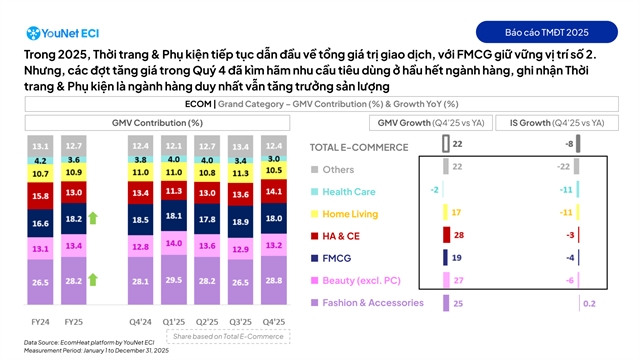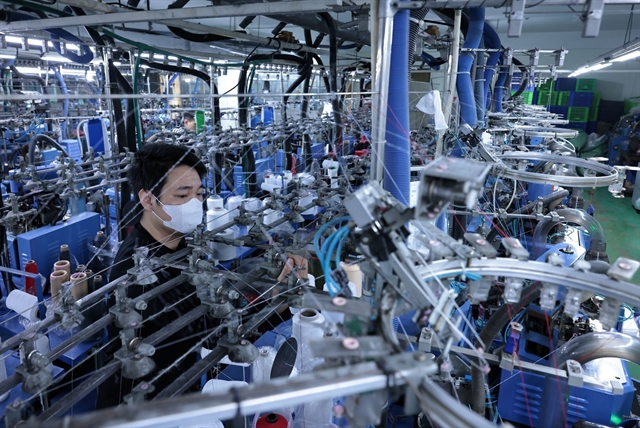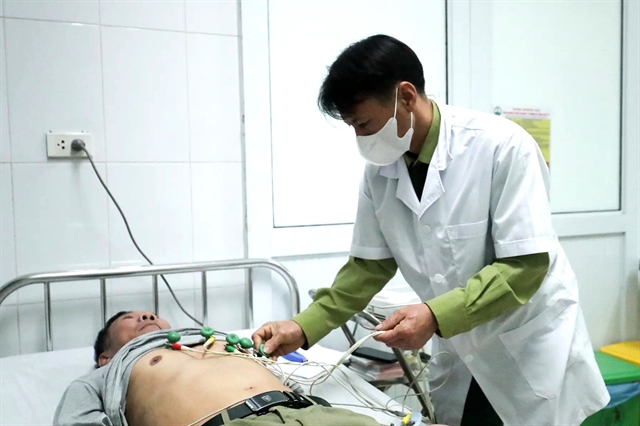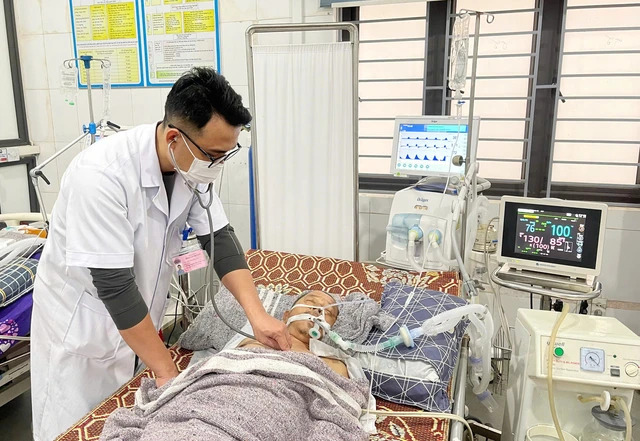 Politics & Law
Politics & Law

Deputy Prime Minister Vũ Đức Đam yesterday met with the Ministry of Defence to review the sector’s science and technology research and plans for the future.
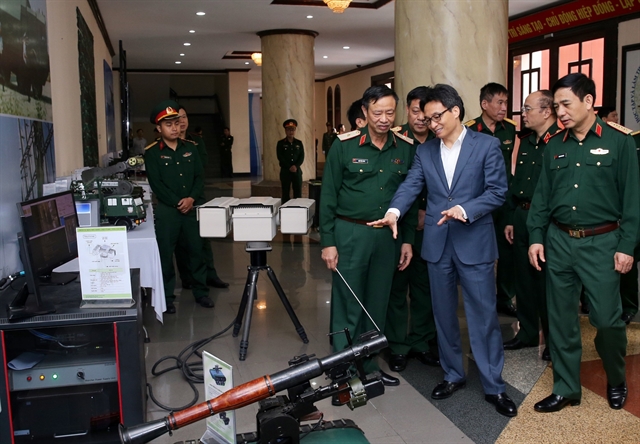
|
| Deputy Prime Minister Vũ Đức Đam visited an exhibition of weapons and materials at the Ministry of Defence headquarter in Hà Nội on Tuesday. — VNA/VNS Photo Dương Giang |
HÀ NỘI — Deputy Prime Minister Vũ Đức Đam on Tuesday had a meeting with the Ministry of Defence to review the sector’s science and technology research and plans for the future.
Speaking at the meeting, Deputy Minister of National Defence Sen. Lt. Gen. Phan Văn Giang said since 2015, science and technology research at the Ministry of Defense had closely followed practical requirements and the results of the sector’s research had contributed remarkably to the demands of the army.
Among these research projects, many had been applied for socio-economic development, Giang said.
The rate of science and technology applications was increasing, with many products being mass produced, he said.
The defence sector had also mastered the design and manufacturing processes for weapons and hi-tech equipment, and had advanced training in a number of fields. Its capacity for basic science research, background technology and auxiliary technology had broken new ground.
The ministry's research agency had decoded core technologies involving weapons, including high-quality alloy steel, modern bombs and consumable supplies for submarines and aeroplanes.
Manufacturing units at the defence ministry were working on targets set by the Government.
Participants at the meeting suggested the Government should encourage non-military agencies to take part in science and technology research to serve the defence sector’s demands.
Deputy Prime Minister Vũ Đức Đam highly applauded the efforts and achievements made by the defence sector in science and technology research, and asked the sector to work on new solutions for human resources training and financial mechanism renovation.
The sector should also set policies to encourage military agencies to produce dual-use technologies that could serve both national defence purposes and economic development needs.
Deputy PM Đam agreed with the ministry’s plan for the next five years, adding the sector also needed to increase the domestically made ratio of military products.
“The ministry should invest in research centres, universities and colleges, learning from regional and international experience. Connections and co-operation between research institutes, universities and military agencies should be fostered to develop strong research groups that meet regional standards,” he said.— VNS

